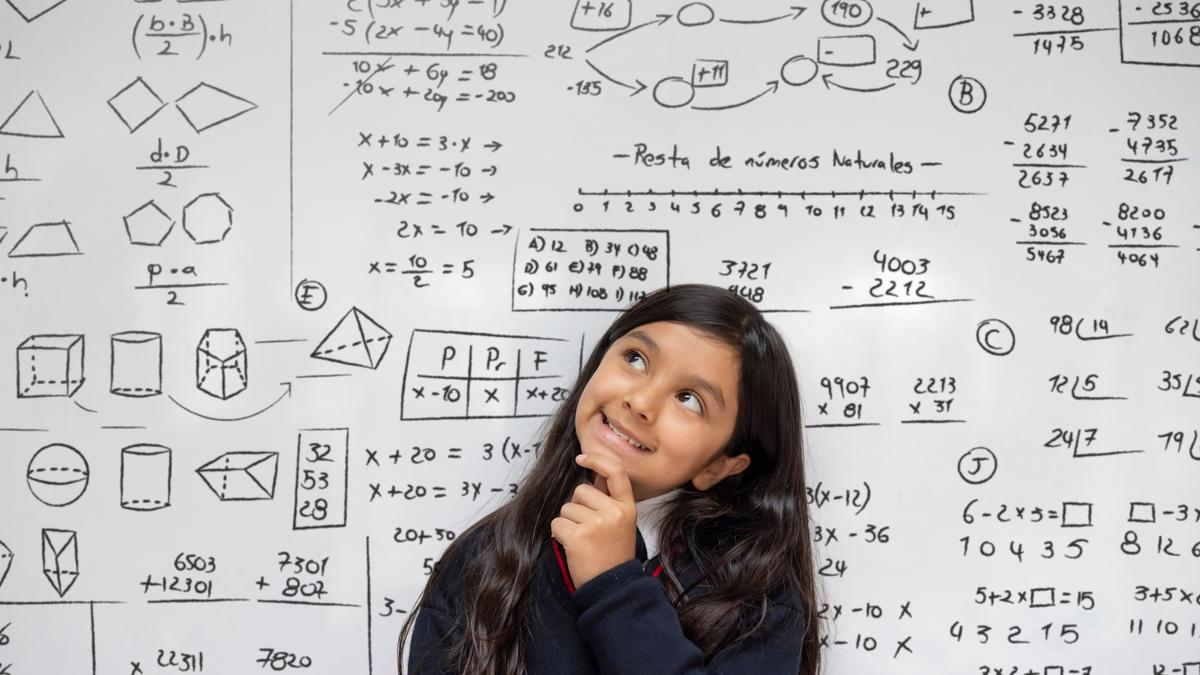A student’s struggle in maths does not make her any less.
| Photo Credit: Getty Images
I still remember the dread that washed over me every time the maths teacher began calling students to the blackboard. A moment I was sure would appear in my memoirs, titled “The Anxiety Chronicles”. My palms would go cold, my legs stiff. I would sit silently, eyes glued to the notebook, praying she would not call me. But somehow, it was always my name. And the moment she called it out, I would rise with trembling hands, walk to the front of the class, and face the board like a wall too tall for me to climb ever.
I wasn’t bad at school. But I wasn’t good at the right things.
Maths and science never came naturally to me. I could not solve an equation in 30 seconds like the girl sitting next to me. I did not enjoy balancing chemical reactions or memorising formulae. My interest leaned elsewhere — towards the co-curricular, towards subjects that let me feel, create, and express. Yet every day in school felt like a quiet reminder that the things I was drawn to were not the things that mattered. What did matter was speed with numbers, precision with logic, and high scores in what were always referred to as the “core subjects”.
Those who could do that — my classmates who raced through equations or recited the periodic table effortlessly — were celebrated as intelligent, bright, promising. Teachers remembered their names. Parents compared us with them. And I, unable to see myself in that mould, quietly questioned my worth. I used to sit at my desk wondering what was wrong with me. Why couldn’t I understand a maths problem like my friend? Why did I freeze in front of the board while others shone? I was the daughter of a mother who teaches maths — surely, I was supposed to be better at this? Genetics, it turns out, has a sense of humour. That pressure sat quietly on my shoulders, unspoken but deeply felt. It was never about disappointing her — it was about disappointing the idea of what a “smart student” is supposed to look like.
As I grew older, I realised that school wasn’t just teaching us subjects — it was shaping our ideas of intelligence, success, and self-worth. And somewhere along the way, it had told us a lie: that some talents are more valuable than others. Art, music, and drama are often treated as “extra” or “optional”, rarely defining excellence or carrying the same importance as a report card. And yet, what if your strengths lie there? What if you are the student who writes poetry that makes people pause, or choreographs with instinct and emotion, or leads teams with empathy and creativity? The reality is school rarely makes space for such minds. The damage isn’t just structural — it’s deeply personal. When schools prioritise certain abilities over others, they do not just shape education; they shape identity. I’ve seen so many students, including myself, doubt our worth because our brilliance did not fit the mould. We were made to feel like we were almost enough, but not quite. But intelligence is not a one-size-fits-all concept.
Howard Gardner’s theory of multiple intelligences argues that there are many ways to be smart — linguistic, spatial, musical, interpersonal, bodily-kinesthetic, and more. The irony is the world we grow into doesn’t operate this way. Real-life success depends as much on creativity, collaboration, adaptability, and emotional insight as it does on logic and analysis. Yet schools continue to prepare students for a world that doesn’t exist outside their walls.
If I could speak to my younger self now — the one who stood shaking at the blackboard — I would tell her this: your struggle in maths didn’t make you less. Your fear didn’t mean you lacked intelligence. Your interests weren’t side stories to someone else’s success — they were your story. And they matter.
Today, I still believe in education. But I hope that the idea of a “brilliant student” evolves. That someday, schools will not just reward what fits the answer key, but also what makes us feel, move, think, and see the world differently. Because in the end, brilliance is not a formula. If it were, I would have definitely forgotten it by now. It’s the courage to be fully, unapologetically yourself — even when the system can’t quite measure it.
myselfdevikalal@gmail.com
Published – June 08, 2025 02:45 am IST

